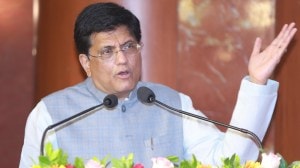UK faces an uncertain tide
Opinion polls in the run-up to Britains general election on May 6th have seesawed with such volatility that no one is sure...
Opinion polls in the run-up to Britains general election on May 6th have seesawed with such volatility that no one is sure whether the original favourite,the Conservative Party,will make it across the finishing line with a majority. Political historians are fishing out accounts of the previous five occasions in the past century when hung parliaments ensued after indecisive elections.
Should 2010 play out like 1974,for instance,when Labour became the largest party in the House of Commons but fell 17 seats short of forming a government on its own,the UK is in for instability and another snap election later this year. The prospects of one of the two main parties being forced to seek a post-election coalition with the Liberal Democrats in order to conjure up a majority or rule as a short-term minority government until fresh elections are called are also gnawing given the serious economic crisis that has flattened the UK.
The imperative for political stability to shore up a paralysed economy is commonsense and will likely nudge some undecided voters to plump for the Tories,whose lead in the surveys has shrunk to single digits but who are still poised to emerge as the single largest party after votes are counted. A rational voter is driven by calculations that ones ballot must not be wasted,especially in a tight race. The right wing in Britain will expect that voters who are somewhat tired of 13 years of Labour rule and who might otherwise prefer the Liberal Democrats will shift their loyalties to the Tories to help them attain the simple majority number of 326 MPs.
How did the Conservatives blow up their commanding lead in last years opinion polls,in effect snatching uncertainty from the jaws of victory? A good deal of this is being attributed to their early failure to read the publics pulse on stimulus spending and budget deficits. With an unemployment rate close to 8 and economic growth in sluggish and negative mode for the foreseeable future,the British electorate expects high levels of state expenditure as a buffer.
But Conservative party leader David Cameron blundered in late 2009 by asserting that he would take unpopular decisions if elected,to ease the soaring debt-to-GDP ratio. His dreaded phrase austerity package,which entailed cuts in public sector salaries and jobs as well as plans to raise the retirement ages of older workers,seemed like a throwback to Margaret Thatchers fiscal conservatism. Tory opinion poll ratings took a sharp rap. After the initial damage was done,it has been an uphill battle for the Conservatives to eat humble pie and water down libertarian policy platforms.
The disarrayed City of London,which is the second biggest centre of world finance after New York,may have applauded Camerons traditional Tory vision of small government and balanced budgets with a sigh of relief,but the average British voter was shaken to the core by neoliberal nostrums being floated around while she struggled to put bread on the table.
The Tories have since backtracked on urgent cuts in state spending and gone about the campaign trail promising tax credits to families,home buyers and small businesses. By dangling benefits that sound eerily like those of the ruling Labour party,the Conservatives have accepted the pragmatic compulsions of winning elections by hook or by crook,even if that means shelving their ideological hobby horses until the votes are counted. Losing a fourth general election in a row is so scary for the Tories that they have sacrificed their core ideals to avoid such a nightmare.
Though Labour has now caught up with its old nemesis in opinion polls,its liability seems to be the grim figure of PM Gordon Brown. Britains tabloids have stitched together a persuasive discourse about Brown as a stony,cold-hearted,grumpy and abusive man who actually bruises his staff physically during uncontrollable temper fits. Labour tried to capitalise on this calumny by branding Brown as a tough leader who has the gutsy characteristics of a fighter who can pull the UK out of its economic mess. Thus far,this track has failed to convince voters who blame Brown for grossly mishandling the economy. Brown and Cameron have also fielded their spouses in campaigns to project self-images of softness,approachability and caring that allegedly carry some weight with female voters.
In the absence of ideological distinction between manifestos,this general election has been Americanised by bringing in the personality comparison drama. Starting this week,British viewers are being treated to live televised debates among Brown,Cameron and Nick Clegg. This visual experience is bound to have some swing impact on unsure voters,although the UK citizens only elect a local representative to parliament rather than directly electing the PM.
As the closest British election in a generation arrives without definitive dividing issues between the Left and the Right,last-minute desperation has driven parties to agonise about losing their diehard loyalists who root for unswerving ideological firmness. This is why Cameron has suddenly resurrected the Tory legend of a big society,where citizens wrest control from the state and take back their communities from excessive government intervention. Brown is cooing the reverse song about government as a force for social justice and the public sector as a repository of good.
Will 45 million voters fall for the bait of this contradictory jumble of parties wanting to be everything to everyone? We shall know after May 6,but the bigger question is whether voters and voted have the sagacity to act collectively to extract Britain from what a Brown aide has labelled as the worst economic depression in 100 years.
The author is an associate professor of world politics at the OP Jindal Global University
- 01
- 02
- 03
- 04
- 05































